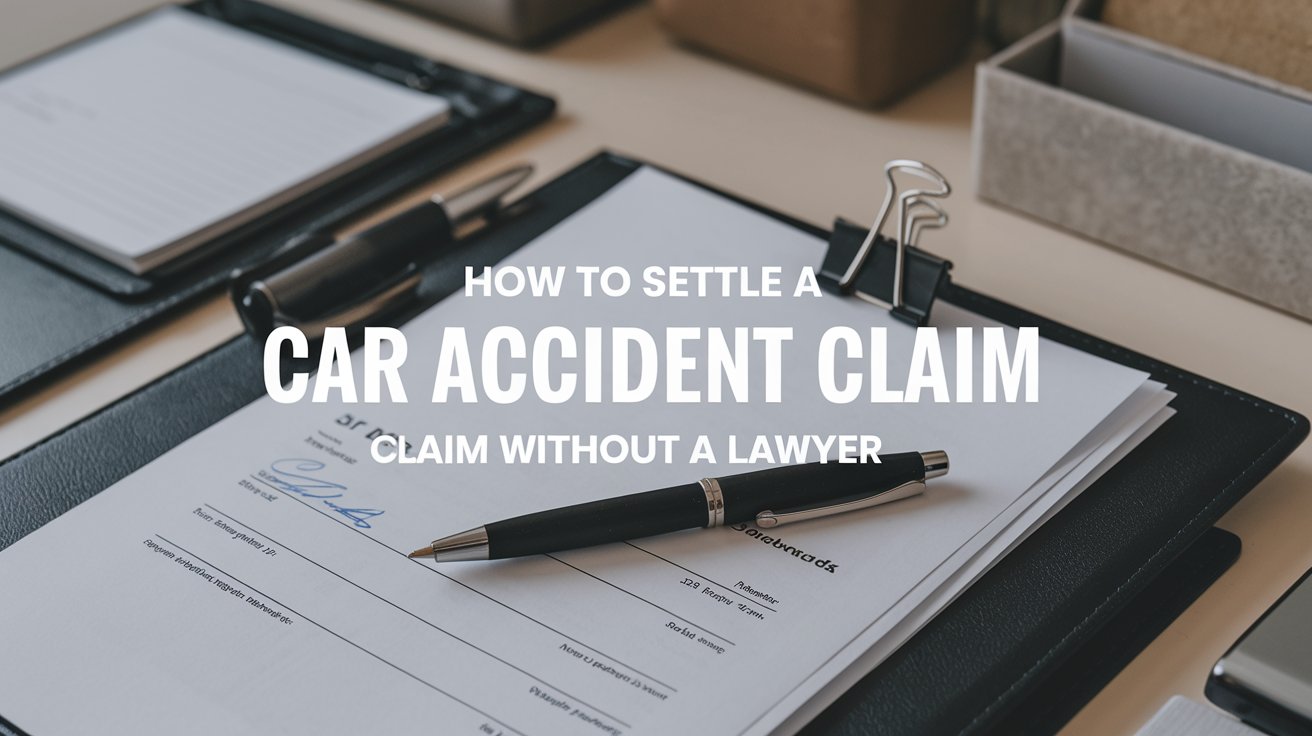After being involved in a car accident, you may consider handling the insurance claim process yourself. While we at The Joseph Dedvukaj Firm firmly believe that legal representation typically leads to better outcomes, we understand some individuals may initially want to navigate the settlement process independently. This guide outlines the steps for self-representation while highlighting potential pitfalls and situations where attorney involvement becomes crucial.
Understanding the Process
1. Document Everything Thoroughly
Begin by collecting comprehensive evidence immediately after your accident:
- Take photographs of all vehicles involved, focusing on damage
- Capture images of the accident scene, including road conditions, traffic signals, and skid marks
- Obtain contact information from all parties and witnesses
- Request a copy of the police report
- Keep detailed notes about the accident while events are fresh in your memory
2. Seek Immediate Medical Attention
Even if you feel fine initially, some injuries manifest days or weeks after an accident. Prompt medical evaluation creates a record connecting your injuries to the collision—essential for any claim. Document all:
- Medical visits and treatments
- Diagnostic tests and results
- Medications prescribed
- Treatment recommendations
- Follow-up appointments
3. Understand Your Insurance Coverage
Michigan’s no-fault insurance system is particularly complex. Review your policy carefully to understand:
- Personal Injury Protection (PIP) benefits
- Property damage coverage
- Mini-tort provisions
- Uninsured/underinsured motorist coverage
4. Calculate Your Damages Accurately
For a fair settlement, you must account for all potential damages:
- Current medical expenses
- Anticipated future medical costs
- Lost wages and diminished earning capacity
- Vehicle repair or replacement costs
- Out-of-pocket expenses
- Pain and suffering (in qualifying cases)
5. Prepare a Demand Letter
Craft a professional demand letter to the insurance company that includes:
- A clear account of the accident
- Description of your injuries
- Documentation of all damages
- A specific settlement amount
- Deadline for response
6. Negotiate Strategically
Be prepared for counter-offers below your demand amount. Consider:
- Starting with a reasonable but higher figure than your minimum acceptable amount
- Responding to lowball offers with additional documentation supporting your claim
- Maintaining detailed records of all communications
When to Reconsider Self-Representation
While handling your own claim is possible in very minor accidents, certain situations strongly warrant professional legal assistance:
Serious Injuries Are Involved
If you’ve sustained significant injuries requiring extensive treatment or resulting in long-term impairment, calculating appropriate compensation becomes increasingly complex. Cases involving drunk driving accidents or rollover accidents often result in severe trauma that may not be immediately apparent.
Liability Is Disputed
When fault is contested or multiple parties are potentially responsible (common in rear-end collisions with multiple vehicles), navigating liability issues requires legal expertise. Similarly, cases involving road defects introduce additional complexity regarding government liability.
The Insurance Company Acts in Bad Faith
If you encounter delays, claim denials without explanation, or pressure to accept unreasonably low offers, these may indicate bad faith practices requiring legal intervention.
Complex Scenarios Emerge
Special circumstances dramatically complicate claims, including:
- Hit-and-run accidents requiring specialized investigation
- Rideshare accidents involving multiple insurance policies
- Bus accidents or commercial vehicle incidents with corporate defendants
- Accidents resulting in permanent disability or disfigurement
The Value of Professional Representation
Research consistently shows that accident victims with attorney representation typically receive significantly higher settlements—often 3-4 times more than those without representation, even after legal fees. This occurs because experienced attorneys:
- Understand the true value of claims based on similar case outcomes
- Recognize and counter insurance company tactics
- Have resources to thoroughly investigate accident circumstances
- Can consult with medical experts to project future needs
- Possess negotiation expertise developed through hundreds of similar cases
- Can credibly threaten litigation when insurers refuse fair settlements
Conclusion
While it’s possible to settle minor car accident claims without legal representation, doing so often results in settlements far below what victims legally deserve. The complexity of insurance regulations, difficulty in accurately valuing claims, and sophisticated tactics employed by insurance companies create significant disadvantages for unrepresented individuals.
If you’re considering handling your own claim, we recommend at minimum scheduling a free consultation with a qualified personal injury attorney to understand your options. Most reputable firms, including ours, offer complimentary case evaluations and operate on contingency fees—meaning you pay nothing unless your case succeeds.
The decision to proceed independently or with professional guidance ultimately remains yours, but should be made with complete awareness of what’s at stake in your recovery journey.
This article provides general information for educational purposes only and should not be construed as legal advice. Every accident case presents unique circumstances requiring individualized assessment.


